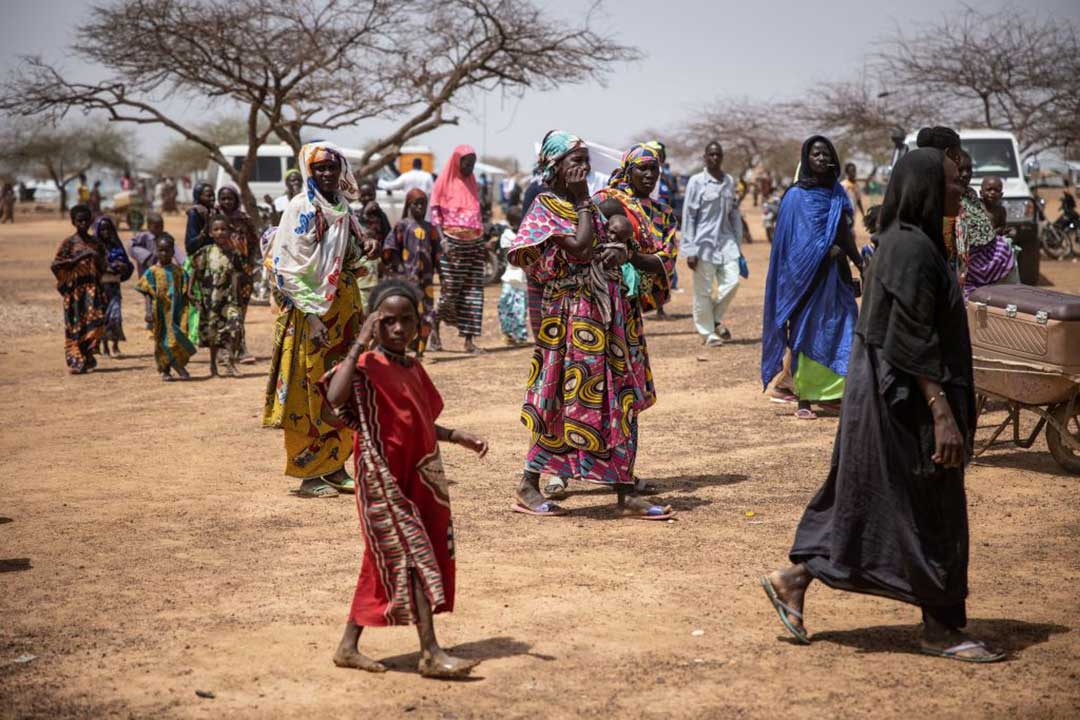Malian Citizens Suffer Amid Army, Extremist and Mercenary Attacks
ADF STAFF
In September, terrorists fired three rockets at a ferry on the Niger River, killing 49 people. Witnesses said the victims, all civilians, drowned or were burned to death. The terrorists reportedly were members of the al-Qaida-linked group known as Jama’at Nusrat al-Islam wa al-Muslimeen (JNIM).
About the same time, Malian forces launched counterinsurgency attacks in three villages in the Nara and Timbuktu regions. In one attack, authorities arrested and killed 16 men and a boy, with their bodies later found outside the village. Witnesses said the armed forces included foreign armed white men, allegedly mercenaries from Russia’s Wagner Group.
Human Rights Watch reported in November that JNIM fighters have killed more than 160 civilians, including 24 children, since early April. Malian Armed Forces, the research group said, had killed as many as 40 civilians, including at least 16 children, during counterinsurgency operations during that time.
Both sides in the conflict also have been accused of rapes, pillaging and summary executions. Government soldiers and the terrorists have targeted civilians for supposedly collaborating with the other side.
“The army … kills people without fearing any consequences,” one villager told Human Rights Watch. “The jihadists also kill, kidnap and burn without fear of being held accountable. And we, the civilians, we are caught between a rock and a hard place in our own country.”
Mali became independent in 1960 and experienced decades of turbulence until the early 1990s, when democracy stabilized and allowed for some economic and social progress, according to the Mali Rising Foundation. It was a mostly peaceful and relatively democratic country in an often-troubled region until a 2012 military coup and an uprising in the north of the country started the current problems.
“Overthrowing the democratically elected government opened up a power vacuum that violent extremist groups exploited, and the Malian Armed Forces — with support from the U.N., the European Union, and the United States — have struggled to bring under control ever since,” the United States Institute of Peace reported.
The Armed Conflict Location & Event Data Project (ACLED) recently calculated that violence against civilians in Mali between January and August of this year increased by 38% compared with 2022. The project said that the Islamic State in the Greater Sahara, JNIM, the Malian Armed Forces and the Wagner Group were the main forces responsible.
The fighting also has forced civilians from their homes. The International Committee of the Red Cross reports that as of the end of 2022, more than 400,000 people had been internally displaced in Mali, “forced to leave their homes, livestock and livelihoods behind.” The research group Integral Human Development reported that 200,471 refugees left Mali in 2022, and most were registered in Mauritania, Niger, Burkina Faso, Italy and France.
After eight years of trying to suppress terrorists in Mali, France withdrew its forces in 2022. The United Nations peacekeeping mission in Mali, which at its peak had 15,000 Soldiers and police officers in the country, will pull out by the end of this year, at the insistence of the junta. More than 180 members of the peacekeeping force have died during the mission.
Officials said the U.N. mission was stuck in a no-win situation. “If you leave, you have anarchy and civil war, especially against civilians and the weak,” said Ahmedou Ould-Abdallah, a former Mauritanian foreign minister, as reported by Reuters. “If you stay, you are almost discredited.”
Another political-military organization, the Azawad National Army, also known as the CSP, has joined the fighting. The movement is made up mostly of ethnic Tuareg fighters and recently reported that it has been involved in “vigorous combat” against a convoy of Malian soldiers and Wagner mercenaries, according to Voice of America.
ACLED reports that as hostilities increase between the Malian Armed Forces, the Wagner Group, JNIM and the CSP, “civilians face an increased risk of being caught in the crossfire and displaced.” The project warned of the possibility of a “full-blown civil war.”
“In addition, the Malian transitional government faces both a reawakened Tuareg rebellion and a growing jihadist insurgency, posing greater threats to the stability and security of civilian areas throughout Mali,” ACLED concluded.
The U.N. also has raised the alarm, saying that “the devastating surge in terrorist attacks against civilian and military targets” already has resulted in “alarming humanitarian consequences,” according to Al-Jazeera.


Comments are closed.